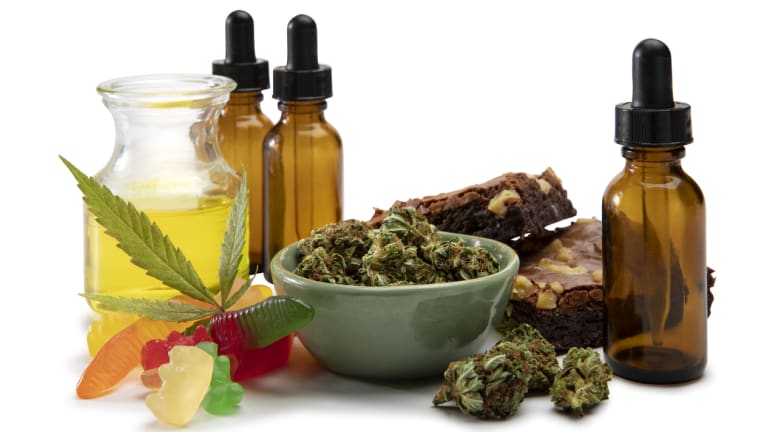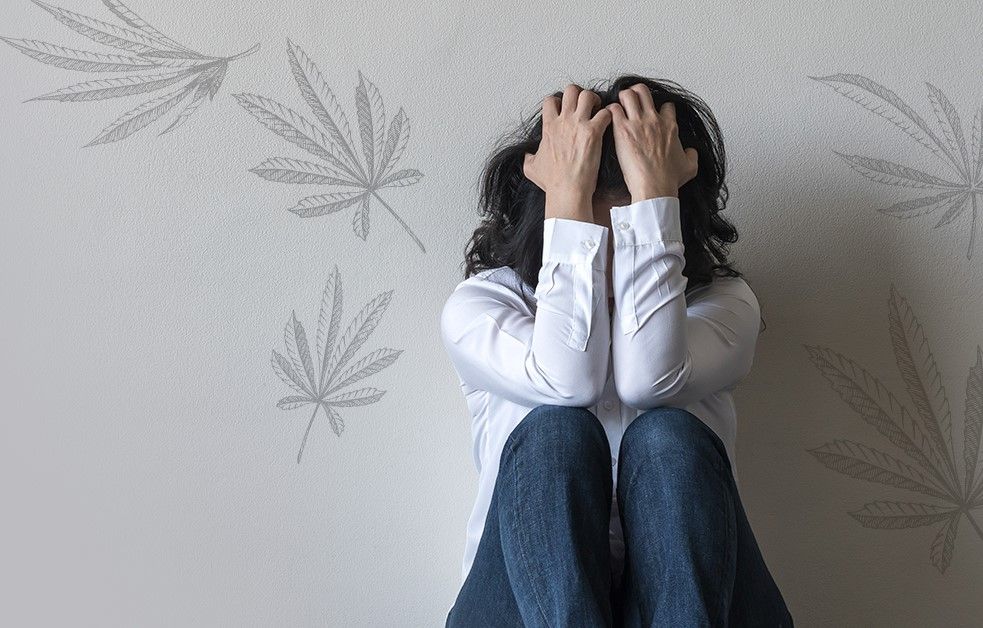Marijuana and its potential uses, both recreational and medical, continue to be debated heavily. In the United States, Marijuana has always been seen as a dangerous illicit drug with a controversial past . However , new research suggests that marijuana may have therapeutic benefits . So it seems that marijuana may not be so different from other substances after all – it likely has both positive and negative effects depending on how it is used.
With marijuana use on the rise and perception of the drug slowly shifting, Election 2020 saw many states pass legalization or decriminalization bills. And this trend may only continue to grow in popularity. One Benefit of this is that it allows for more extensive research to be done as scientists have fewer barriers when attempting to study the substance closely. Even though there have been numerous studies performed already, we still don’t know a lot about how marijuana affects brain function.
With its potential therapeutic effects on anxiety, pain and other ailments, many people are increasingly turning to marijuana. Anxiety is one of the most widespread problems in America today, affecting 40 million adults yearly. Could marijuana be an additional tool for doctors and clinicians who treat anxious patients? Or is it a potential harm that only aggravates anxiety problems?
What is in Marijuana?
Marijuana is a drug that originates from Cannabis plants, such as Cannabis indica and Cannabis sativa. The active ingredients in marijuana, called cannabinoids, can impact your brain and body function. However, we are unaware of the full extent of how these chemicals work. Two prominent cannabinoids found in marijuana are cannabidiol (CBD) and Tetrahydrocannabinol (THC).
The endocannabinoid system is in charge of maintaining homeostasis, or your body’s internal balance. This includes regulating your body temperature, circadian rhythm, heart rate, and appetite. When THC and CBD bind with the receptors in the endocannabinoid system they can affect brain function and other bodily processes.
THC is the most well-known active ingredient in marijuana and it can cause a high. Other effects of THC include an increased appetite, heart rate, and memory suppression. CBD is also found in marijuana but it does not cause a high. However, it may have some other effects on the body and brain. Very high doses of THC can sometimes result in adverse effects like psychosis, especially in people with psychotic disorders like schizophrenia. A 2013 study found that CBD might actually help to counteract some of the harmful effects of THC when they’re taken together at typical dose levels
The marijuana sold on the streets today is often more potent than it was in the past, due to the increased levels of THC. THC is the active ingredient that produces the high, so growers and dealers are interested in having higher levels of THC in their product. This can result in less profitable shipments being sent out if smaller packages contain more potent strains of marijuana. The side effects caused by this highly potent weed with low CBD levels could be uncomfortable or even cause psychotic symptoms at high doses.
Due to improved regulation, marijuana from states where it is recreationally or medicinally legal may have a more ideal THC to CBD ratio.
As marijuana becomes legalized in more places, researchers are taking a closer look at its potential benefits and harms. Some people want even more research to be done as legal marijuana use continues to grow and new companies begin selling cannabis products.

What are the Benefits of Treating Anxiety With Marijuana?
Numerous benefits come from medical marijuana use. They include reducing nausea, stimulating appetite, and decreasing pain and inflammation. The drug also has a history of treating cancer patients effectively. Treatments like chemotherapy can result in suppressed appetite, nausea, and pain—but marijuana helps ease these symptoms significantly. In addition, neuropathic pain is often tough to treat with regular painkillers— but not so when using marijuana as medicine.”
But what can marijuana do for anxiety?
Even though the U.S. Food and Drug Administration hasn’t approved marijuana for medical purposes, it has given CBD the okay in particular cases. You can still get marijuana-based medication from a doctor even if it’s not intended to be used for that purpose– this is called off-label prescribing.. For example, if a doctor prescribed anxiety medication but its original use wasn’t to treat anxiety.
Marijuana is rumored to help with relaxation, sleep and calmness. It’s sometimes used to treat social anxiety, agoraphobia, PTSD, panic disorders and anxiety-related sleep disorders. However marijuana has a complicated effect on anxiety because it seems to make some people better while making others worse. Marijuana-induced anxiety seems to be related higher doses of THC and low doses of CBD.
CBD has shown to be effective in treating anxiety, though more research still needs to be done according to a 2015 review. CBD has shown potential to help treat anxiety disorders, according to a review from The American Society for Experimental NeuroTherapeutics.
Can Marijuana Cause Anxiety?
Some people may experience anxiety symptoms after taking marijuana, especially those who take strains with high THC levels. While marijuana doesn’t typically cause anxiety disorders in people who wouldn’t have them otherwise, it can aggravate pre-existing conditions. Someone with an anxiety or panic disorder may see a worsening of symptoms when they consume high doses of THC. If you use medical marijuana as treatment for your anxiety, you will most likely take lower doses of THC than some illicit sources can provide.
What are the Dangers of Using Marijuana?
Although marijuana is not as addictive as other illicit substances, it can still lead to substance abuse issues. Medications used to treat anxiety disorders, like benzodiazepines, may actually be more addictive and cause increase dependency issues.
People who discontinue using marijuana after a prolonged period report feeling physical and mental withdrawal symptoms such as anxiety, uneasiness, insomnia, and malaise. Additionally, active users may experience less pleasant side effects like heart palpitations, perspiration, racing thoughts memory problems irritability hallucinations confusion and more.
Not only does marijuana impair driving skills, but this effect is intensified when compared to other legal medications.
Although the health risks of marijuana smoke are still being studied, it is known that smoking marijuana may come with some risks. For example, though it hasn’t been proven to be as harmful as tobacco smoke in terms of leading to serious issues like cancer, marijuana smoke can throat and lung irritation. Additionally, vaping has been linked to serious lung injuries.
Why Self Medication is Dangerous
People who self-medicate use psychoactive drugs without the aid of a medical professional to solve underlying issues such as anxiety. In many cases, people don’t mean to start using drugs recreationally to mask symptoms, but that is what happens. Over time, drug use becomes normalized and you might find yourself using it just so you can feel normal again.
Self-medication can be dangerous and, particularly when you want to treat conditions like depression or anxiety, it is unwise to try treating mental health without a doctor’s help. Mental health issues are often complex and adding psychoactive drugs into the equation without professional guidance could make matters worse. Even with medical assistance, treating metal disorders with medication can pose difficulties as it frequently requires a period of testing different doses and combinations of drugs until an effective solution is found that has minimal side effects.
Self-medicating generally means consuming a drug and dose without any professional input. Oftentimes, self-medication can be dangerous – especially when taking illicit drugs. If you have an anxiety disorder, using marijuana unsupervised may actually amplify your symptoms rather than alleviate them. This is particularly true if your anxiety stems from an underlying condition like schizophrenia or another disorder that can cause psychosis; in these cases, marijuana use may worsen these symptoms.
Other Anxiety Treatments
Because anxiety disorders are so predominant in the US, there are a plethora of ways to manage your particular issue. Anxiety can spring from several sources and might demand unique treatment methods. Considering you consult with a medical or clinical expert, they will be able to help diagnose the type of anxiety disorder you have and what strategies would work best to treat it. If you’re struggling with anxiety, psychotherapy and behavioral therapy can help you understand your condition better and develop more effective coping mechanisms. And thanks to the increased availability of telemedicine, it’s easier than ever to speak to a therapist.
Contrary to popular belief, there is not one catch-all solution for mental health disorders. However, medication prescribed by a doctor may be able to help alleviate symptoms. Please note that it often takes trying various medications before finding the right one–but do not give up hope. Mental health can undoubtedly be complex but anxiety and other disorders can certainly get better with treatment and effort.

